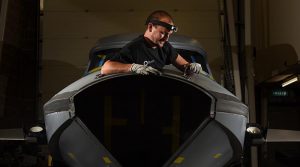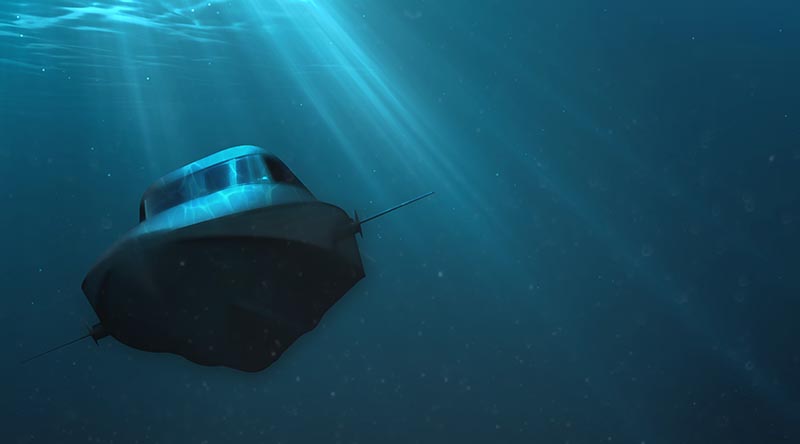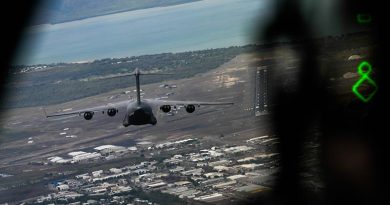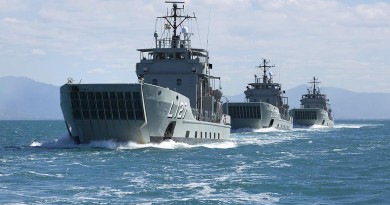Intriguing new spec-ops insertion vessel launching soon
Share the post "Intriguing new spec-ops insertion vessel launching soon"

A new surface-submersible watercraft combining fast-surface characteristics with those of a specialist submersible is being built in the UK and soon to hit the water.
 CAPTION: Artist’s impression of the VICTA surface-submersible watercraft in action and, right, a SubSea Craft engineer works on the hull. Images supplied.
CAPTION: Artist’s impression of the VICTA surface-submersible watercraft in action and, right, a SubSea Craft engineer works on the hull. Images supplied.
As the build gains speed, maritime technology business SubSea Craft has revealed new images of the VICTA – a revolutionary craft designed for the defence market with special forces in mind.
The images show VICTA’s true form emerge as the lower hull is bonded to the upper skin, giving shape to the whole craft for the first time this week.
Capable of operating both on and under the water, VICTA combines the characteristics of a fast surface craft with those of a specialist submersible to deliver divers on or beneath the surface – discreetly.
The craft is designed around the operator and features a number of technical firsts for the maritime sector.
Its performance in both domains and the rapid transition between the two is enabled by a unique fly-by-wire control system, which delivers dynamic stability in all conditions.
This will enhance the craft’s safety while reducing friction in the cockpit – thus leaving the crew to focus on the mission.
Entering its final build phase, the team at Subsea Craft is working tirelessly to ensure the build quality required for VICTA’s operation at pressures up to 4BAR.
The craft is made of carbon fibre with a Diab core – a lightweight construction many times stronger than fibreglass.
VICTA will be powered on the surface by a sub-marinised SeaTek 725hp diesel engine through a highly efficient water jet, achieving predicted speeds up to 40 knots over a range of 250nm.
Two SubCtech lithium Ion battery packs kick-in upon diving, to power sub-surface operations for up to four hours – sufficient to cover 25nm with two crew and six operators.
The design features forward and rear hydroplanes – a vital part of the control system in maintaining stability when submerged – and vertical thrusters to enhance low speed manoeuvrability.
The vessel will also be fitted with obstacle-avoidance sonar capable of building a 3D impression of the sea floor out to 600m and down to 100m, to help guide and navigate the vessel unaided underwater.
Subsea Craft CEO Scott Verney said now that the dynamic shape and form of VICTA had been established, the company could get to the truly exciting stages of the build.
“Integration of the full technical suite and control systems for the craft will be a game-changing moment,” Mr Verney said.
“We are on track for trials and testing this coming winter, with the aim of having the craft operational in late 2021.”
Funded by a private investor to the tune of £12m, the company is seeking second-stage investment to enhance working capital profiles, strengthen the brand, expand its offering and infiltrate other sectors.
Primarily aimed at the defence market, this unique British maritime technology provides significant operational capability, broadening the options for commanders of maritime, joint and special operations.
Although focused on defence, there is potential utility elsewhere in the leisure, research and offshore energy sectors.
For more information and updates from the company on the progress and delivery of VICTA, visit subseacraft.com
.
.
.
.
.
.

.
.
Share the post "Intriguing new spec-ops insertion vessel launching soon"





